JANUARY
Galle Literary Festival
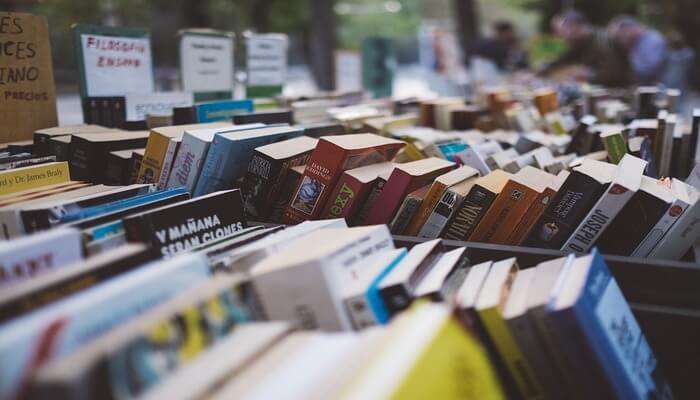
Set in and around the historic city of Galle, a UNESCO World Heritage site, the Galle Literary Festival is a major event in Sri Lanka. The program boasts over 70 events. By day visitors can find: panel discussions, debates, book launches, poetry slams, literary lunches and dinners, film evenings, seminars, and a comprehensive children’s program. By night, the program features poetry slams, jazz performances, late night movies, art showings, and photographic exhibitions. Over 40 international and 50 Sri Lankan writers have participated.
The Galle Literary Festival made a spectacular return in 2016 after a 3 year hiatus.
Since it’s beginnings in 2007, the “Galle Lit Fest” has grown into becoming one of the premiere international cultural events celebrating writing and literature from around the world, so much so, that in 2011, Harper’s Bazaar Magazine UK dubbed The Galle Literary Festival as the “No.1 Literary Festival in the world”.
Duruthu Perehara
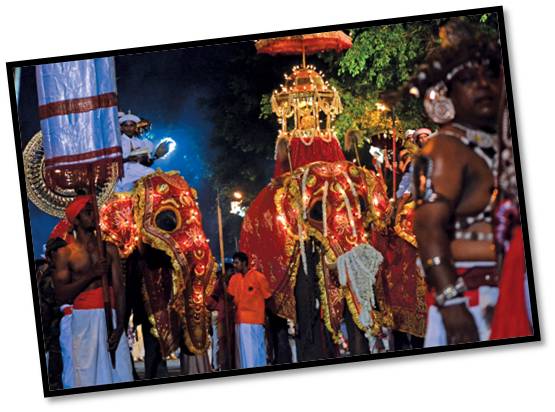
In commemoration of the Buddha’s visit to Kelaniya, this procession is held on the 25th, 26th and 27th of January. The procession commences and culiminated at the Kelaniya Raja Maha Viharaya Temple (North- East Colombo).
Thai Pongal
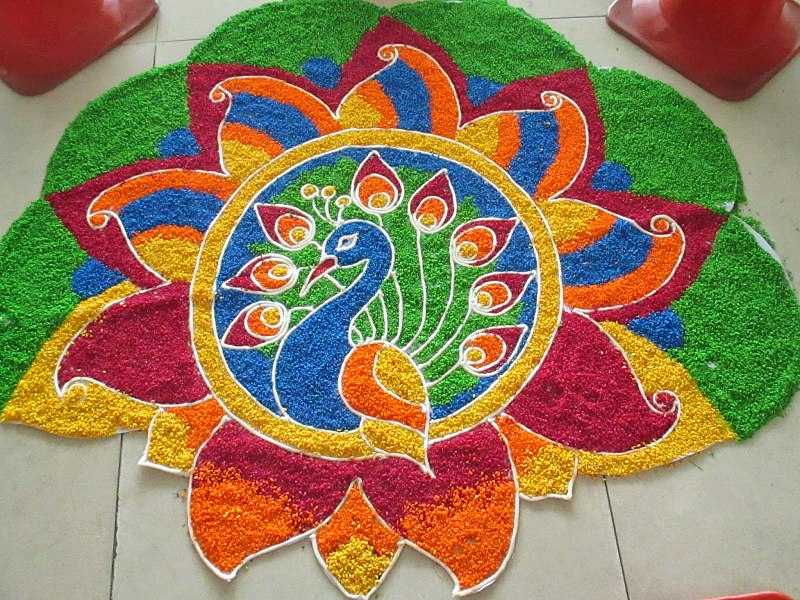
According to the Tamil calendar, Thai Pongal is celebrated in the tenth month Thai on its first day. Thai Pongal is celebrated to offer prayers to the Surya, the Rain God Indra and the cattle for a good harvest. Kolams or Rangolis are drawn in front of the houses using rice paste or powder. The first harvest from the paddy fields is prepared with rice, jaggery and milk. The boiling preparation, when over-turned, is said to determine the course of luck for the remaining year.
Date: Mid of January
Where: Throughout the island
FEBRUARY
Independence Day
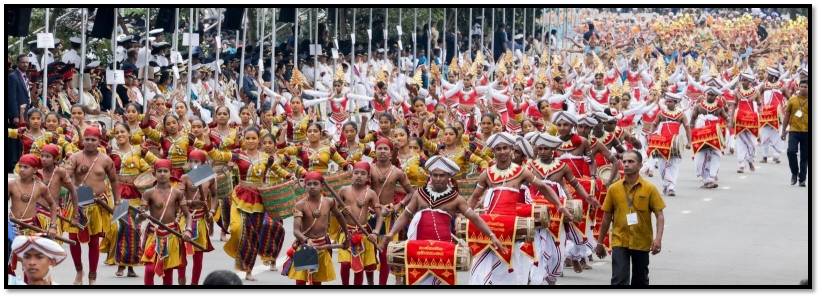
Independence day of any country is important to its citizens and so it is one of the most important festivals of Sri Lanka. On 4th February 1948, Sri Lanka got its independence from colonial rule. Every year to celebrate this auspicious day, the whole country participates in ceremonies and parades. While you are exploring the country you can attend the military parades, flag-hoisting ceremonies, firework displays, cannon fire shows, and cultural performances.
When: 4th February 2021
Where: All across the country
Highlight Of The Festival: Military parades, Flag-hoisting ceremonies
Navam Perahera
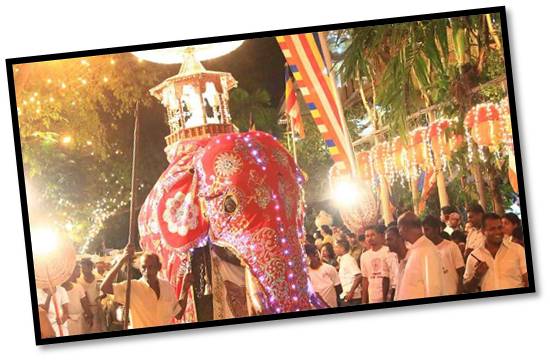
Navam Perahera is the main festival in Sri Lanka which is a mix of colours, parades, and traditions. In 1979, Navam Perahera was celebrated for the first time in the Gangaramaya temple in Colombo. This festival is celebrated grandly and the festivities include fire dancers, whip crackers, flag bearers and hundreds of elephants, You can also witness the marvellous traditional dance like Uda Rata, Pahatha Rata, and Sabaragamuwa. If you are a fan of music you can see the performance of drummers and flutists. Navam Perahera is one of the most fascinating Sri Lankan festivals
Maha Sivarathri
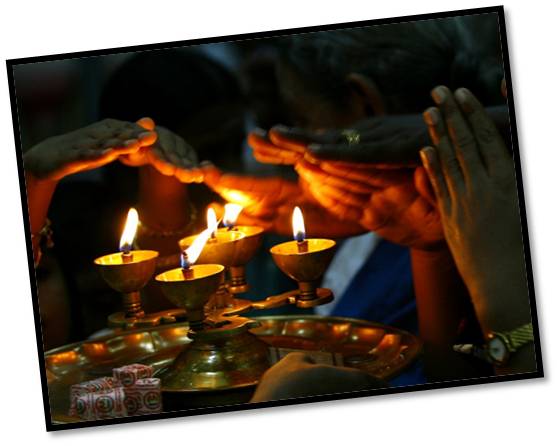
Held in late February or early March, this festival commemorates the union of Lord Siva with his consort Parvati.
APRIL
Sinhala & Tamil New Year
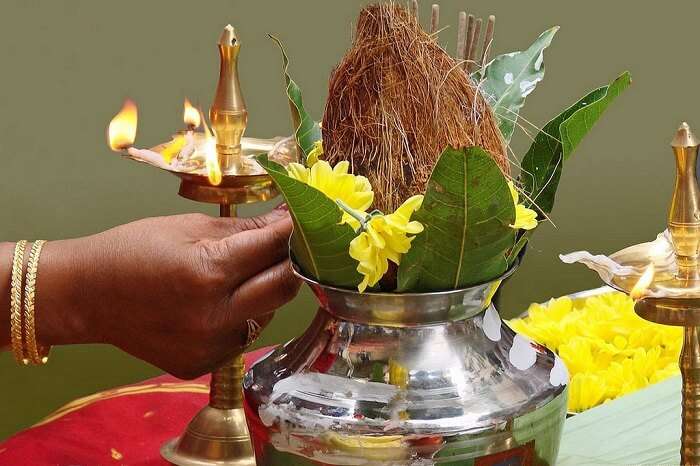
Usually around mid-April every year the entire country is enveloped in a festive atmosphere to mark the Lunar New Year. Amongst all festivals in Sri Lanka, the Sinhala & Tamil New Year is especially celebrated with great pomp and show to mark the end of the harvest season and spring. People get busy cleaning and decorating their homes, preparing traditional sweets, enjoying meals with the family and showing off their new clothes. The celebrations also involve anointing children with herbal oils, bursting firecrackers and organizing competitive games to add to the fun quotient.
When: 13 - 14th April
Where: All across the country
Highlight Of The Festival: Competitive games, bursting of firecrackers
MAY
Vesak Festival
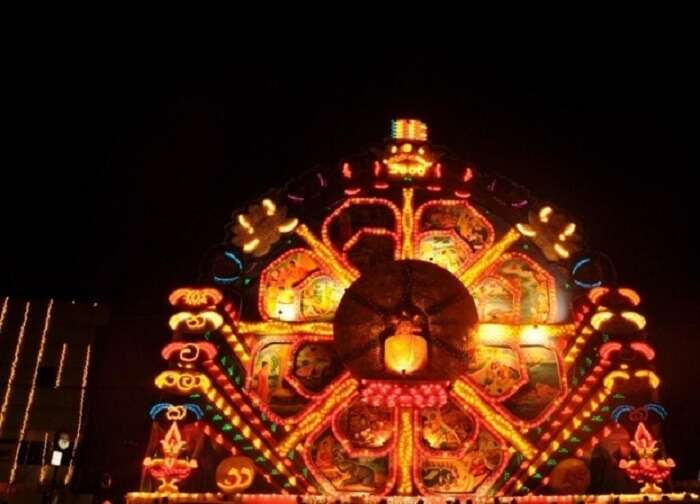
Commemorating the three important milestones in Buddha's life- his birth, enlightenment, and nirvana – Vesak Poya is one of the most prominent Buddhist festivals in Sri Lanka. Celebrations begin on a full moon day and continue up to a week, filling every home, street and shop with the magical light of colorful lanterns called Vesak kudu, depicting the light of Buddha. Cities like Colombo and Kandy sparkle with lit-up pandals displaying elaborate panels from the Jataka stories, while tiny clay lamps brighten up villages throughout the festivities of the Vesak festival 2020 in Sri Lanka.
Where: All across the country, but celebrations in Colombo are on a grand scale.
Highlight Of The Festival: Colorful lanterns and tiny clay lamps
JUNE
Poson Festival
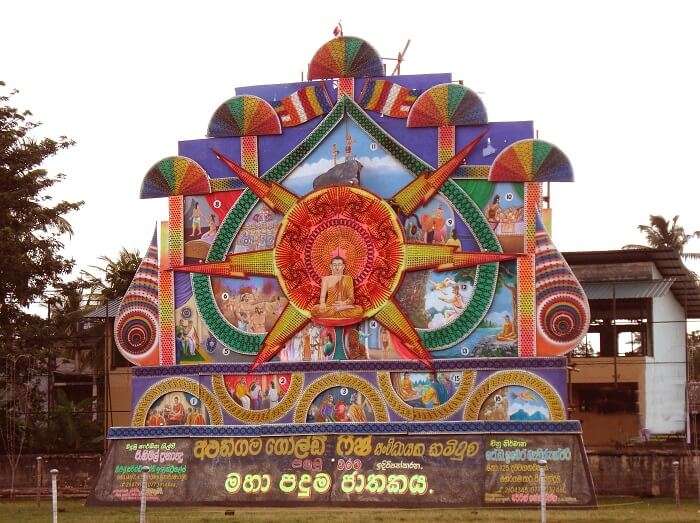
Also known as Poson Paya, this is the second most important one amongst festivals celebrated in Sri Lanka by the Buddhists. Since it commemorates the advent of Buddhism in the island in the 3rd century, Poson Festival holds great historical significance too. Just as in Vesak, the celebrations include lanterns, pandals, and alms-stalls across the island in the true spirit of the Buddhist traditions and teachings. The grandest festivities are in and around Mihintale rock outcrop where Buddha's disciple Mahinda first preached Buddhist doctrines to King Devanampiyatissa. Do attend Poson as it is the most important festival of Sri Lanka.
Highlight Of The Festival: Celebration of Buddhist traditions and teaching
JULY
Kandy Esala Poya Perahera
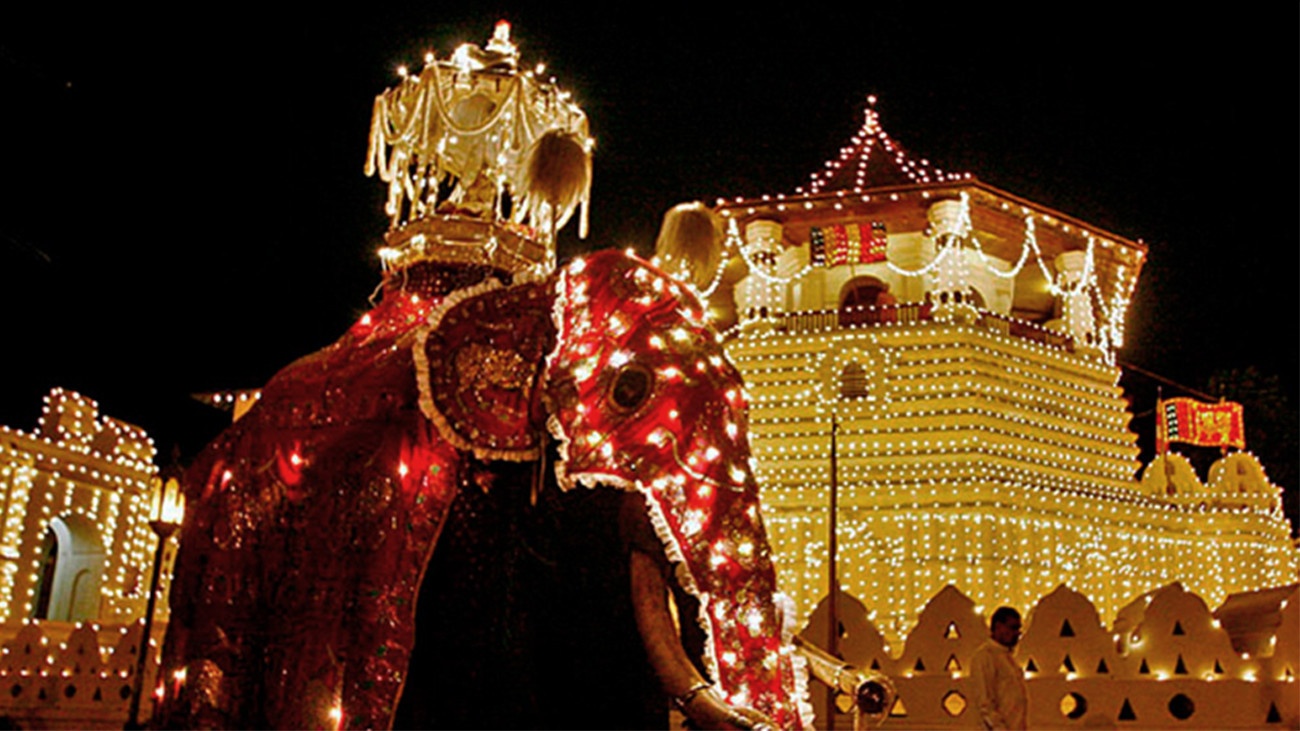
Important one amongst religious festivals in Sri Lanka, The Festival of The Tooth pays homage to the sacred tooth relic of Buddha enshrined at the famous temple in Kandy. The grand celebrations include a spectacular procession of traditional dancers, drummers, and elephants dressed up in rich finery through the streets of the city every day for a week. The excitement, fervour and festivities on the last night must be seen to be believed. It is recommended to book a seat in advance through some local agencies to enjoy the spectacle in its full glory.
Highlight Of The Festival: Traditional dancers, drummers, and elephants
AUGUST
Id Ul- Fitr (Ramadan in Sri Lanka)
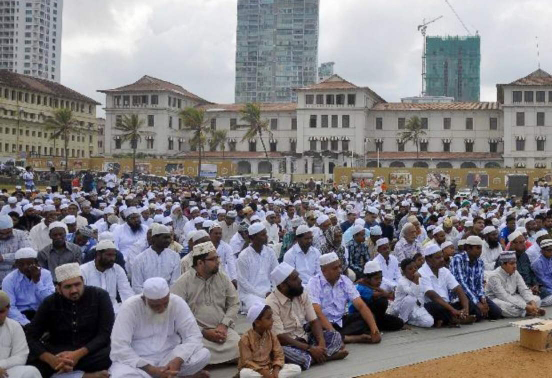
Although Muslims make only 7% of the population but due to their dominance in the cities trade and business, Muslim festivals are celebrated with great joy and tradition. Ramadan fasting month of the Muslim calendar in Sri Lanka is eagerly awaited by all Muslims, children and adults alike THis is a time of relaxed work hours for Muslims in and more traditional life compared to the rest of the year.
In a typical Sri Lankan Muslim house people get up before dawn at about 3 or 4 a.m. to have a meal, usually of rice and curry before beginning the fast. A special prayer is recited that makes a bond that one has began the fast for the day this meal is called Suhur, right after Suhur people head to mosques for Fajar (Early morning prayer) women pray at home.
After a short nap men & women begin the day, some people recite the Quran (Koran), and women also do some sewing work, etc. while in the evening women get busy in making the evening feast for breaking fast. Most Muslim children go to Muslim schools, where they get holidays for Ramadan.
So for boys and girls Ramadan is a time of joy and leisure where they form groups and play indoor games like Carom whole day long avoiding exhaustive sports. In the evening men and working women return home and eagerly wait for the call for the Evening (Maghreb) prayer to breakfast
NOVEMBER
Deepavali
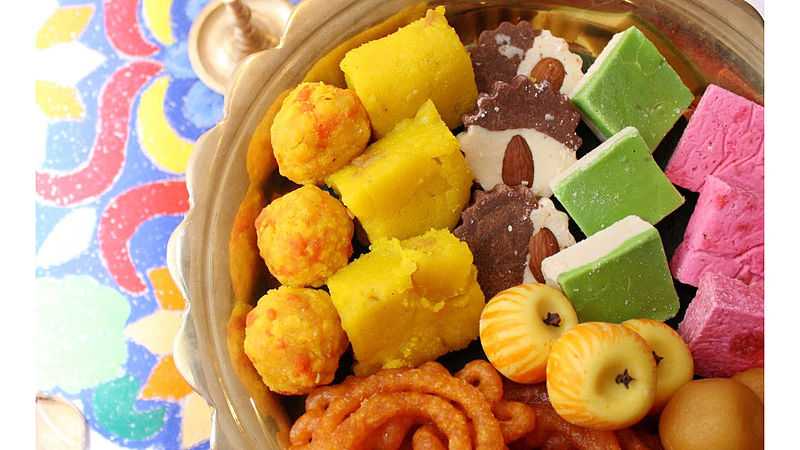
Popularly known as the Festival of Lights, Deepavali is a Hindu festival that renounces the victory of evil over good. The Tamil community in Sri Lanka celebrates Deepavali with great splendour by lighting lamps, bursting firecrackers, singing, dancing, wearing new clothes, visiting Hindu temples, exchanging gifts and meeting their loved ones over lavish meals. The idea behind lighting oil lamps is to seek blessings from the Goddess Lakshmi (goddess of wealth).
Date: October or November
Where: Throughout the island
DECEMBER
Christmas Day

Christmas Day celebrates the Nativity of Jesus which according to tradition took place on December 25th 1 BC. December 25th will be a public holiday in most countries around the world. If 25 December falls on a weekend, then a nearby weekday may be taken as a holiday in lieu.